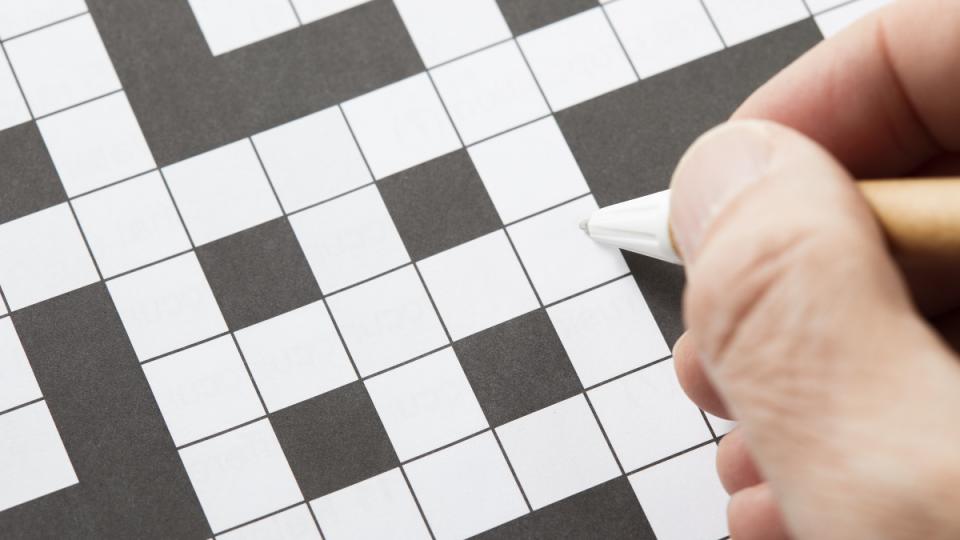MDs Reveal How to Outsmart Menopause Brain Fog Naturally
Menopause means freedom from periods and pesky PMS symptoms (finally!). The downside? It comes with a host of its own less-than-pleasant health hassles And while we tend to focus on the physical ones — hot flashes, weight gain, dry skin and hair — there are other less tangible symptoms that are just as bothersome but tend to fly under the radar. One of the most common is menopause brain fog.
“Brain fog in menopause is real,” says OBGYN Abraham Morse, MD, VP of Clinical Affairs for Vira, the company that operates the Stella virtual clinic for menopause support and a former assistant professor at Harvard Medical School and Tufts University School of Medicine. “There is a lot we don't know about this phenomenon, but we are beginning to understand that it is not caused by any single aspect of the menopause transition.”
Here, learn what causes menopause brain fog and the easiest ways to clear your mind and sharpen your thinking.
What is menopause brain fog?
“Brain fog is a nonmedical term that alludes to a sort of overall lack of brain energy, commonly manifesting as difficulty with attention or recall,” explains Kathleen Jordan, MD, the Chief Medical Officer for Midi Health, a platform focused on medical care for women over 40. “It is not a decline in mental acuity or abilities. It is not a decline in IQ — women remain just as mentally capable as they did prior to menopause.”
Indeed, there is no relationship between the development of brain fog during menopause and actual cognitive decline. “It is understandable to worry that you might be developing Alzheimer's disease or another kind of dementia when brain fog happens," says Dr. Morse. "But there is no evidence that experiencing brain fog signals that you are more likely to develop dementia now or in the future."
Instead, for millions of women, brain fog is just another unfortunate symptom of menopause. “Brain fog during menopause is a very common symptom — 74% of Midi patients report this symptom, even more prevalent than hot flashes, interestingly,” Dr. Jordan adds. What this looks like: You might have trouble maintaining focus on one task, get up from your seat to do something and forget what you were planning to do, or have difficulty remembering new facts like names or numbers.

The top causes of menopause brain fog
Menopause brain fog is caused by a number of physical and lifestyle factors that women go through during this transition period. Here are some of the biggest ones:
1. Hormonal changes
“Estrogen is known to have neuroprotective effects and plays a crucial role in maintaining cognitive function,” says Dr. Jordan. “During menopause, the significant decline in estrogen levels is one of the primary changes that trigger so many things that lead to brain fog. Reduced neurotransmitter activity, changes in cortisol levels, increased overall inflammation and a negative impact on sleep are some of the most studied.”
It’s not just estrogen, either. The other hormones that are affected by menopause, including progesterone and testosterone, may play a role in brain fog, Dr. Jordan adds.
2. Lack of sleep
“Sleep becomes a problem for most women in midlife: 60% of women in this age group report significant sleep issues,” Dr. Jordan says. “Poor sleep quality then translates into daytime fatigue and sluggishness.” That can further contribute to cognitive issues like brain fog.
Related: Too ‘Wired and Tired’ To Fall Asleep? MDs Explain Why It Happens — And the Easy Fixes
3. Other symptoms of menopause
“Hot flashes and night sweats, common during menopause, disrupt sleep and contribute to fatigue," Dr. Jordan says. "That can, in turn, impact brain function and mental acuity. Relieving them, with either hormonal or non-hormonal interventions, can make a huge difference in brain fog.”
Other symptoms, such as changes in mood, can play a role as well. “Low mood does appear to be related to hormone changes, but it is also related to the increased stress and anxiety that anyone going through the menopause transition understands,” Dr. Morse says. “Low mood also affects our brain function and further magnifies the impact of brain fog by lowering our ability to be resilient in the face of increased challenges in day-to-day life.”
Related: MDs Reveal the Best Natural Ways to Ease Bothersome Menopause Symptoms
How to get rid of menopause brain fog
If you find yourself muddling through the day lately due to menopause brain fog, these natural remedies can help. Here, experts share their best tips to boost mental clarity:
1. Do puzzles
“There is evidence to suggest that cognitive stimulation and mental exercises such as puzzles and games can have positive effects on overall cognitive function — but only if you enjoy them,” notes Dr. Jordan. If you take pleasure in doing a sudoku, memory game or crossword puzzle, it’s a surefire way to get rid of menopause brain fog quick.
Proof it works: According to a study in the International Journal of Geriatric Psychiatry, people over 50 who did word puzzles daily performed as well on cognitive tests as folks 10 years younger. (In need of some brain game inspiration? Click for a brain teaser on how many triangles are pictured and more fun brain teaser puzzles.)

2. Go for a stroll
Trying to check off your to-dos, but can't seem to stay focused? Pop outside for a quick walk to the end of the block. Or simply putter around your house as you water your plants or tidy up. “Short bursts of physical activity, like a brisk walk, can increase blood flow to the brain, enhancing alertness and clarity,” says Dr. Morse.
Moving your body even just a few minutes can help. Indeed, a study in the Journal of Epidemiology & Community Health found that less than 10 minutes of moderate activity was enough to improve participants’ working memory and boost their ability to plan and organize their thoughts effectively.
3. Break things down
Sometimes, we get mentally bogged down when faced with a larger task. The result: We find ourselves getting distracted or unable to stay motivated. “When faced with a complex task, break it down into smaller, more manageable steps,” suggests Dr. Jordan. “This can make the task seem less overwhelming and help improve focus.” For example, instead of trying to go through all your clothes to pull out pieces to donate, try starting with your T-shirts first, then moving on to sweaters, then to pants.
Related: Top Experts Reveal the 12 Best Ways To Get Rid of Brain Fog Fast
4. Sip orange juice
For a quick mental pick-me-up, pour yourself a glass of orange juice. Compounds called flavonoids in oranges and their juice have a powerful ability to blast brain fog by boosting blood flow to the brain. In fact, researchers reporting in the European Journal of Nutrition found that sipping 8 oz. of orange juice boosted folks’ alertness and mental performance by 71% for at least two hours. Plus, OJ improved psychomotor speed, a person’s ability to process information and physically respond to it (for example, making a correction while driving when someone veers into your lane). Prefer a snack? Flavonoid-rich options such as such as pomegranate seeds and blueberries also have proven brain-perking effects.

5. Make a list
If you're anything like us, you probably feel as though you have a million and one things to get done at any given time. You'll walk into the kitchen to unload the dishwasher only to get distracted by the pile of mail on your counter or the pantry drawer that needs organizing. Instead of focusing on one task, you find yourself scurrying about trying to get it all done, which can leave you feeling mentally scattered. The fix?
“Create to-do lists and prioritize tasks,” recommends Dr. Jordan. “Organizing your thoughts and responsibilities can help you focus on one thing at a time, reducing mental clutter.” She also suggests a strategy called “sequential tasking” as opposed to multitasking. This simply means you aim to always finish one task before moving onto the next. “Focusing on one thing at a time allows you to maintain increased attention to detail as opposed to hopping from task to task,” Dr. Jordan explains.
6. Change your environment
Plugging away at a task, such as brainstorming ideas for a community fundraiser, for a while can leave you feeling stuck in a mental rut. But simply “stepping outside or moving to a different room can help reset your focus,” says Dr. Morse. Indeed, sometimes carrying your computer to a different room in your house or standing on your front porch to talk on the phone is all it takes to banish menopause brain fog.
7. Grab a cold can
Sounds strange, but just wrapping your hand around a bottle or can that’s been chilling in the fridge provides a brain boost that’s almost instant. In a Stanford University study, people who chilled one palm for 20 seconds performed 39% better on tests of attention and focus afterwards than they did on tests they took after warming their palms. Why? We associate sensations of warmth with safety, which can lower alertness. But cold sensations have the opposite effect. They put us in a mental "on guard" mode that makes us more attentive. (Click through to learn how cold water stimulates your vagus nerve to undo the toll chronic stress takes on your body.)
Menopause brain fog success story: Lori Ballen, 51

What am I doing here? Lori Ballen, 51, thought, after several minutes of staring into the fridge. Oh, that’s right, bread — then remembered she stores it in the pantry. Walking across the kitchen, Lori felt a pang of anxiety. I’m so tired of living in this daze, the Las Vegas realtor sighed.
Lori first started struggling with brain fog after a hysterectomy at age 47. She had hoped as the hormonal changes set in that the fog would lift. But as months passed, it only got thicker. Once, she was hosting a live stream interview for her blog and completely zoned out. She was unable to respond to the interviewee and felt terribly embarrassed. Her forgetfulness that seemed funny at first now made her fearful that her cognitive health was declining.
What will happen as I grow older? she worried. Is this part of the normal aging process, or is it more?
How Lori stumbled upon puzzles for menopause brain fog
Lori took a good multivitamin and an omega-3 supplement and had tried meditation to “clear her mind.” But wondered what else she could do to keep her brain sharp and, hopefully, clear some of the fog. By chance, while standing in line at the grocery store, she picked up a magazine that had logic puzzles in it. It was a childhood activity she had always enjoyed but had fallen away from over the years. She remembered how much concentration and focus it took to solve the puzzles. Maybe these will help, she thought.
That evening, Lori sat down with her new puzzle book. Just reading the first logic question, she felt her brain come alive: 12 people get on a train at different stops, and each person has a different destination. Where do they end up? She became engrossed in solving the puzzle and was shocked that she was able to think clearly and come up with the correct answer: They end up at the airport!
Lori began working her way through the puzzle book, her concentration and memory sharpening with each question. Feeling hopeful, she began downloading Sudoku, crosswords and number puzzles onto her phone. Right away, she noticed a marked improvement in her brain power.

Today, Lori's menopause brain fog is gone for good
Puzzles became a regular part of Lori’s daily routine. “Puzzles keep me on my toes not only while I’m working on them, but for hours — or even the rest of the day — after solving them!” she beams. And that has the added bonus of boosting her mood.
Today, Lori has taken on yet another type of puzzle: genealogy. She pores over records trying to find DNA matches in her family tree. And with her newfound clarity, she was even able to find a family member’s son who she had given up for adoption!
“I would never have had the concentration or mental stamina to do that a few years ago," she says. "But thanks to puzzles, I’m no longer stumbling through my life, wondering where I left things or why I walked into a room. I’ve never felt — or thought — better!”
For more ways to banish brain fog and sharpen your thinking:
Top Experts Reveal the 12 Best Ways To Get Rid of Brain Fog Fast
“Listening to Music in This Healing Frequency Cured My Insomnia and Brain Fog”
The 7 Best Ways To Reverse Brain Aging & Strengthen Memory, According to Scientists
This content is not a substitute for professional medical advice or diagnosis. Always consult your physician before pursuing any treatment plan.
